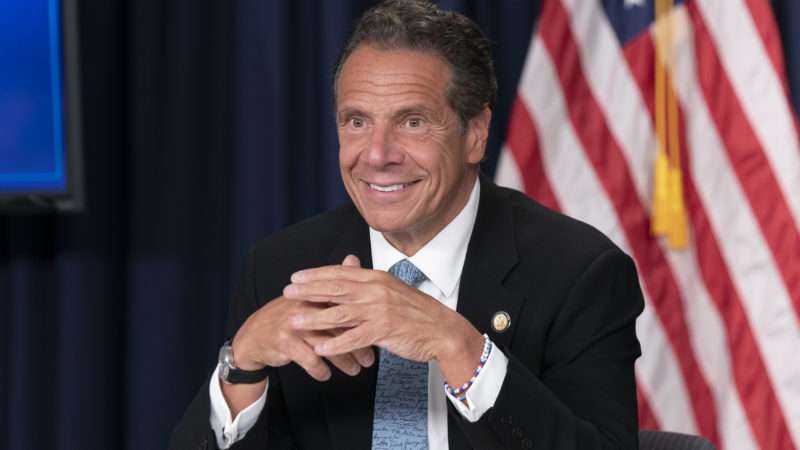Before I get into the specifics of the various state and local statutes, let me flag some questions that different legislatures have answered differently (and, in some instances, that some legislatures haven’t expressly addressed).
[1.] Criminal Liability, Civil Liability, or Both?
Some of the statutes expressly provide for civil liability, some for criminal liability, and some for both. But courts generally treat these sorts of criminal statutes as also generating a private right of action, either as a matter of statutory interpretation or as an application of the “wrongful discharge in violation of public policy” tort.
[2.] Coverage for Existing Employees or Also for Applicants?
Some of the statutes expressly cover all employer decisions. Others only cover discharge or discipline of current employees rather than refusal to hire applicants. Note, though, that the California Supreme Court has read its statute as covering discrimination in hiring, even though the statutory text refers just to actions with regard to “employee[s].”
[3.] Application Only to Established Policies, or Also to Individual Employment Decisions?
Some of the statutes expressly cover all employer actions, but others cover only policies restricting speech. Such policies need not be published ones; an accepted course of conduct would suffice.[1]
The question is whether the statutes that ban speech-restrictive “polic[ies]” should also apply to individual incidents of discrimination, animated by an employer’s concerns at that moment rather than by some coherent general plan. The Louisiana Supreme Court has answered the question yes, holding that the ban on enforcing any “rule, regulation or policy” restraining political activity extends to individual firing decisions made even without any express policy. “[T]he actual firing of one employee for political activity constitutes for the remaining employees both a policy and a threat of similar firings.” On the other hand, the California Supreme Court has defined “policy” as “[a] settled or definite course or method adopted and followed” by the employer, and a California federal district court has specifically concluded that an individual retaliatory decision does not suffice to show the existence of a “rule, regulation, or policy.”
[4.] Application Only to Threats, or Also to Employment Decisions Made Without Threats?
Some of the statutes expressly cover all employer actions, but others cover only “threat[s] … calculated to influence the political … actions” of other employees. But, as the Louisiana case cited above notes, “the actual firing of one employee for political activity constitutes for the remaining employees both a policy and a threat of similar firings.” Once coworkers learn that an employee was fired based on his speech or political activities, the coworkers will perceive that action as a threat, even if no express threatening words were used. This is especially so given that, as the Supreme Court has recognized, employees’ economic dependence on the employer reasonably leads them to pick up even subtle signals when their jobs are at stake.
[5.] Off-the-Job Speech or All Speech?
Some statutes expressly cover only off-the-job speech, while others have no such limitation. Should courts implicitly read in such a limitation? In Dixon v. Coburg Dairy, Inc., later reversed on procedural grounds by an en banc decision, a Fourth Circuit panel held that one such statute does not include on-the-job speech. A contrary view, the panel held, would have the “absurd result of making every private workplace a constitutionally protected forum for political discourse.”
But the Connecticut Supreme Court in Cotto v. United Technologies Corp. held that the absence of any statutory language limiting protection to off-the-job speech means that the statute may indeed apply to such speech. Likewise, a California Court of Appeal decision suggested that the California statute generally applies to on-the-job speech.[2]
[6.] Implicit Exceptions for Speech and Political Activity That Sufficiently Undermines Employer Interests?
Some statutes expressly allow employers to restrict speech or political activity that sufficiently undermines employer interests. These will be discussed in the next subsection.
Other statutes, though, categorically cover speech without any express accommodation of employer concerns. In Louisiana, for example, even when “the ‘business’ justification for firing plaintiff in this case is a real one”—such as that plaintiff’s political advocacy “would antagonize persons who could withdraw business from plaintiff’s employer”—”the policy of the statute is unmistakable: the employer may not control political candidacy of his employees. We see no exemption from the legislative purpose because of the nature of the employer’s business.”
One federal district court took a contrary view, concluding that the California statute should be read as containing an implied exception for cases “when the employee’s political activities are patently in conflict with the employer’s interests.” But this was based on what strikes me as a misreading of an earlier California state precedent. And California state courts have never read the statute as having such an implied exemption.
A few of the political activity protections come in antidiscrimination statutes that (1) ban discrimination based on various classifications, including political ideology or affiliation, and (2) carve out a “bona fide occupational qualification” (BFOQ) exception for certain antidiscrimination categories, such as sex and religion, but not for political ideology.
Such drafting strongly suggests that there is indeed no exception from the political ideology discrimination ban. “Expressio unius, exclusio alterius“; the inclusion of sex and religion in the BFOQ provision suggests that the excluded antidiscrimination categories are not subject to a BFOQ defense. This is in fact how federal courts have reasoned in holding that race cannot be a BFOQ under Title VII, given that it is “conspicuously absent from the [BFOQ] exception” (which lists religion, sex, and national origin, but not race or color).
[7.] What Is the Scope of Explicit Exceptions for Speech and Political Activity That Sufficiently Undermines Employer Interests?
Some statutes do expressly allow employers to restrict employee speech when abstaining from the speech is a BFOQ, when the speech is “in direct conflict with the essential business-related interests of the employer,” or when the speech creates “reasonable job-related grounds for dismissal.” Do these exceptions cover speech that interferes with the employer’s activities by leading customers or coworkers to dislike the employer—for instance, when the speech is critical of the employer, or when the speech offends some people?
Generally speaking, when the term “bona fide occupational qualification” is used with regard to sex discrimination or religious discrimination, customer or coworker hostility is not seen as sufficient to trigger the BFOQ exception. In the Equal Employment Opportunity Commission’s words, “the preferences of coworkers, the employer, clients or customers” “do not warrant the application of the bona fide occupational qualification exception.” Thus, for instance, that some people are offended or alienated by an employee’s religion does not justify the employer in firing the employee. When laws that ban discrimination based on off-duty conduct (including speech), speech, or political affiliation use the same phrase, this suggests that employers likewise may not fire an employee just because his off-duty actions offend customers or coworkers.
Nonetheless, some cases interpreting the statutes give employers a good deal of authority to restrict speech that turns customers against the employer. Thus, a district court interpreting the Colorado statute’s exception for restrictions that “relate[] to a bona fide occupational requirement” held that (1) an employer could treat an employee’s loyalty as a bona fide occupational requirement, and that (2) an employee’s letter to a newspaper complaining about alleged mistreatment of employees and poor customer service breached such a duty, though (3) public complaints about safety would not breach the duty.
Likewise, a New York appellate court read an exception for activity that “creates a material conflict of interest related to the employer’s trade secrets, proprietary information or other proprietary or business interest” as allowing the German National Tourist Office to fire an employee for becoming known as the translator of some Holocaust revisionist articles. Presumably the court’s view was that the activity could lead to public hostility to the office, and that this hostility created a “conflict of interest” between the employee and the employer’s “business interest.”
Other cases, however, consider some speech to be protected even when it does injure the employer. The Colorado case mentioned above is a partial example, because it concluded that public complaints about safety would be protected against employer retaliation even when they injure the employer. Likewise, a Connecticut case held that a statutory exception for speech that “substantially or materially interfere[s] with the employee’s bona fide job performance or the working relationship between the employee and the employer” did not cover an employee’s report to a state agency of “allegedly wrongful or illegal conduct” by the employer’s customer.
The employee, a worker for a home nursing company that sold services to nursing facilities, reported substandard care at one of the facilities. The court acknowledged that “[i]t may be true that [the employer’s] business relationship with their customer was impacted negatively as a result of the reporting of violations by the plaintiff.” But, the court concluded, such speech is “the exact kind of ‘expression[] regarding public concerns that are motivated by an employee’s desire to speak out as a citizen’ to which … this statute applies.”
[8.] Do General Bans on “Threats” Apply to Threats of Loss of Employment?
Though most of the statutes discussed below expressly bar discrimination in employment, or threats of loss of employment, some speak generally of threats, intimidation, or coercion. But in similar statutes, the terms “threats,” “intimidation,” and “coercion” have indeed been interpreted to include threat of economic retaliation.
Thus, for instance, federal law bans “intimidat[ing], threaten[ing], coerc[ing], or attempt[ing] to intimidate, threaten, or coerce any other person for the purpose of interfering with the right of such other person … to vote as he may choose.” The Fifth and Sixth Circuits have interpreted this law as prohibiting threats of economic retaliation.[3] Likewise, the Fair Housing Act makes it illegal “to coerce, intimidate, threaten, or interfere with any person … or on account of his having aided or encouraged any other person in the exercise or enjoyment [of housing nondiscrimination rights].” Circuit courts have interpreted this as barring the firing of employees who rented to black and Mexican-American applicants, and barring the denial of agency funds to an organization that complained about a discriminatory permit denial.
[1]. Lockheed Aircraft Corp. v. Superior Court, 171 P.2d 21, 24 (Cal. 1946).
[2]. Cal. Teachers Ass’n v. Governing Bd. of San Diego Unified Sch. Dist., 45 Cal. App. 4th 1383, 1387 n.2 (1996). The court held that a specific state statute, Cal. Educ. Code § 7055 (2002), that allows certain public education agencies to restrict on-the-job “political activity” carves out an exception from the general California statute protecting such political activity. But the opinion suggests that the general statute would apply to on-the-job speech in workplaces that are not exempted by a specific statute such as § 7055.
[3]. United States v. Bd. of Educ. of Greene County, 332 F.2d 40, 44, 46 (5th Cir. 1964) (concluding that the refusal to renew a year-to-year employment contract based on a person’s exercise of her right to vote could be “intimidation”); United States v. Bruce, 353 F.2d 474, 476–77 (5th Cir. 1965) (likewise, as to property owners’ decision to bar a person from their property, when this decision seriously interfered with the person’s ability to work as an insurance premium collector); United States v. Beaty, 288 F.2d 653, 656 (6th Cir. 1961) (likewise, as to landlords’ retaliation against their sharecropper tenants).

from Latest – Reason.com https://ift.tt/3g0EnLY
via IFTTT


